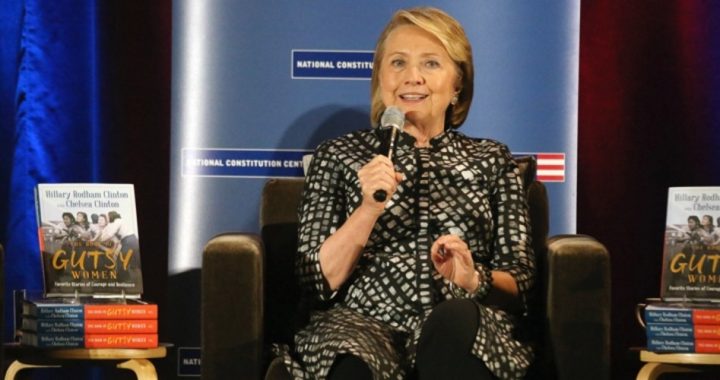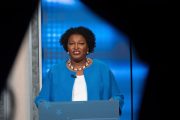
With the Iowa caucuses just over three months away, Democrats are starting to worry that none of the candidates seeking their party’s presidential nomination has what it takes to beat President Donald Trump, according to recent reports.
“Since the last debate, just anecdotally, I’ve had five or six people ask me: ‘Is there anybody else?’” Leah Daughtry, a longtime Democrat who has run two of the party’s recent conventions, told the New York Times.
Party leaders and activists are concerned that the current frontrunner, former Vice President Joe Biden, isn’t performing up to standards. He’s been busy lately defending his family’s ethics, his debate performances have been mediocre, and he hasn’t raised nearly as much money as his rivals.
Meanwhile, they fret that the other two leading contenders, Senators Elizabeth Warren (D-Mass.) and Bernie Sanders (I-Vt.), while more enticing to the party’s base, are too far to the left to attract enough votes in November.
“They don’t have anybody who can win the general [election],” John Coale, a major donor to both Bill and Hillary Clinton, told the Washington Post.
As to the rest of the Democratic field, only South Bend, Indiana Mayor Pete Buttigieg seems to be garnering much support, coming in just behind Biden and Warren in a recent USA Today/Suffolk University survey of likely Iowa Democratic caucusgoers. But Buttigieg is struggling to attract black voters, in no small part because he is homosexual and is “married” to another man, as leaked results of a focus group of black voters in South Carolina revealed. (One focus-group participant, when asked about Buttigieg’s much-publicized faith, perceptively inquired, “How can you refer to God when a lot of people think you’re living ungodly?”)
One big problem for Democrats is that their candidates, with few exceptions, are trying to please so many disparate interest groups, from abortion-rights activists to transgenderism proponents, that they risk alienating the broad swath of Americans who seek stability rather than upheaval.
“You need to run on things that half the country agrees with you,” former Maryland Congressman John Delaney, one of the many Democrats looking to take on Trump, told the Post.
“Medicare for All,” a goal that has been embraced by most of the Democratic candidates, was singled out for particular criticism by many of those speaking to the newspapers.
“I think it’ll be a hard sell to the public if we go into the general election for ‘Medicare for All,’” Senator Sherrod Brown (D-Ohio) told the Times. Brown was especially concerned about union members who would lose their generous health plans under such a program since it would replace all private health insurance with a single-payer, government-run plan.
What do you do when you believe, as many Democrats do, that the other party’s presumptive nominee is ripe for defeat but that none of your party’s current contenders is capable of beating him? You start looking for alternatives.
Topping the list of alternative candidates is former Secretary of State Hillary Clinton, who lost to Trump in 2016 but clearly relishes taking another crack at him. Clinton has been making waves lately, sparring with Trump on Twitter, promoting a book she wrote with her daughter, and accusing Representative Tulsi Gabbard (D-Hawaii) of being a Russian tool — all of which suggests she’s considering reentering the fray.
“Ultimately, it’s unlikely she would do it,” a person who’s talked to Clinton told the Post. “But put it this way: It ain’t zero. And does she think about it all the time? Absolutely.”
Other suggested candidates include former New York Mayor Michael Bloomberg — who, according to the Times, “is said to be eager to find a way into the race” — former Secretary of State John Kerry, former Attorney General Eric Holder, former Massachusetts Governor Deval Patrick, and Senator Brown.
It is, however, unlikely that any new entrants into the race will emerge; time is simply too short. Any candidate would have to get a campaign organization running full-tilt almost immediately. The candidate would need to poll well enough and rake in sufficient donations to be included in future debates. And he or she would have to scramble to get on the primary ballots in many states.
But Democrats can dream; can’t they?
Photo: AP Images



